The digestive tract plays a vital role in your health, as it’s responsible for absorbing nutrients and eliminating waste. Unfortunately, many people suffer from digestive problems like bloating, cramping, gas, abdominal pain, diarrhea, and constipation for various reasons. Certain conditions, such as Irritable Bowel Syndrome (IBS), Gastroesophageal Reflux Disease (GERD), Crohn’s Disease, diverticulitis, and heartburn, can put you at risk for more severe digestive issues. However, even a healthy person can experience digestive problems due to a lack of fiber or probiotic-rich foods in their diet. So how do you alleviate these problems? You can start by adding probiotic-rich foods to your diet. Here are some foods that are good for your digestive system.
Whole Grains
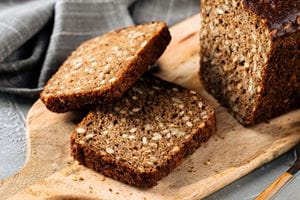
Grains are the seeds of grasslike plants called cereals. To be classified as a whole grain, it must contain 100% of the kernel, including the bran, germ, and endosperm. Popular fiber-packed whole grains include oats, quinoa, farro, and products made from whole wheat. The fiber found in these grains can help improve digestion in two ways. First, fiber helps add bulk to your stool and reduces constipation. Second, some grain fibers act like prebiotics and help feed healthy bacteria in your gut.
Yogurt
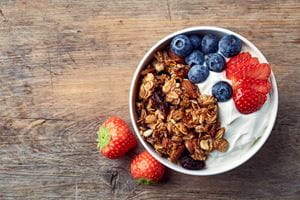
Yogurt is made from milk that has been fermented, typically by lactic acid bacteria. It contains friendly bacteria known as probiotics, which are good bacteria that live in your digestive tract and help improve digestion, keeping your gut healthy. While probiotics naturally occur in your gut, boosting your intake through foods like yogurt can ease digestion. Probiotics can help with digestive issues, such as bloating, constipation, and diarrhea. They have also been shown to improve the digestion of lactose or milk sugar. However, not all yogurt contains probiotics. When shopping, be sure to look for “live and active cultures” on the package.
Leafy Greens
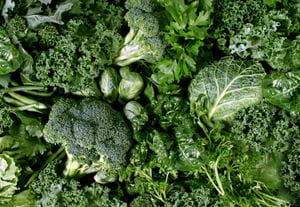
Green vegetables are an excellent source of insoluble fiber. This type of fiber adds bulk to your stool, quickening its pace through your digestive tract. Green vegetables are also a good source of magnesium, which can help relieve constipation by improving muscle contractions in your gastrointestinal tract. The most common dark green vegetables that provide this benefit are spinach, Brussels sprouts, broccoli, and other leafy greens. In addition, a 2016 study revealed an unusual sugar found in green leafy vegetables that feeds good bacteria in your gut. This sugar is thought to aid digestion while also impairing some harmful bacteria that can cause illnesses.
Apples
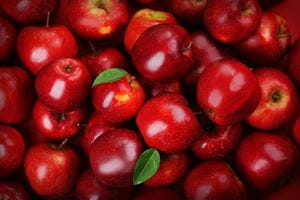
They say that an apple a day keeps the doctor away. However, did you know that apples are suitable for your digestive system? Apples are a rich source of pectin, a soluble fiber. Pectin bypasses digestion in your small intestine and is then broken down by the friendly bacteria in your colon. It increases stool volume and is therefore commonly used to resolve constipation and diarrhea. It has also been shown to decrease the risk of intestinal infections and inflammation in the colon.
Chia Seeds
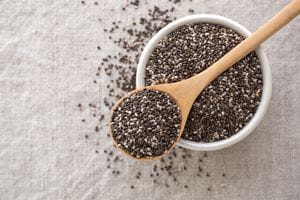
Despite their small size, chia seeds are full of nutrients, including Omega-3 fatty acids, iron, calcium, and antioxidants. They have a mild, nutty flavor and can be an excellent addition to a balanced diet. Chia seeds are an excellent source of fiber, which causes them to form a gelatin-like substance in your stomach once consumed. They work like a prebiotic, supporting the growth of healthy bacteria in your gut and contributing to healthy digestion. Their fiber content also helps promote bowel regularity and healthy stools.
Avocados
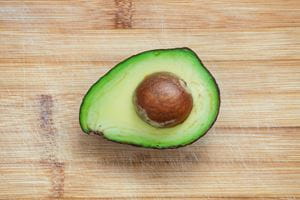
Also known as an alligator pear or butter fruit, avocados are a type of berry. They grow in warm climates. Avocado is a superfood packed with fiber and essential nutrients, such as potassium, which helps promote healthy digestive function. Avocados can also reduce the risk of obesity, diabetes, heart disease, and overall mortality. It’s a low-fructose food, so it’s less likely to cause gas. Be wary of portion sizes for foods like nuts and avocados. Although they are rich in nutrients, they are also high in fat, so be sure to eat them in moderation.
Digestive issues can be challenging, but certain foods may help ease uncomfortable symptoms. Research also supports eating fermented foods, such as yogurt, kimchi, and tempeh, to increase probiotics in your diet, which can improve digestive health. Fiber-rich foods, such as whole grains, dark green vegetables, and chia seeds also play a role in digestion by helping food move through your system more easily or quickly. If you’re seeking relief from your digestive woes, consider adding some of these foods to your diet.
